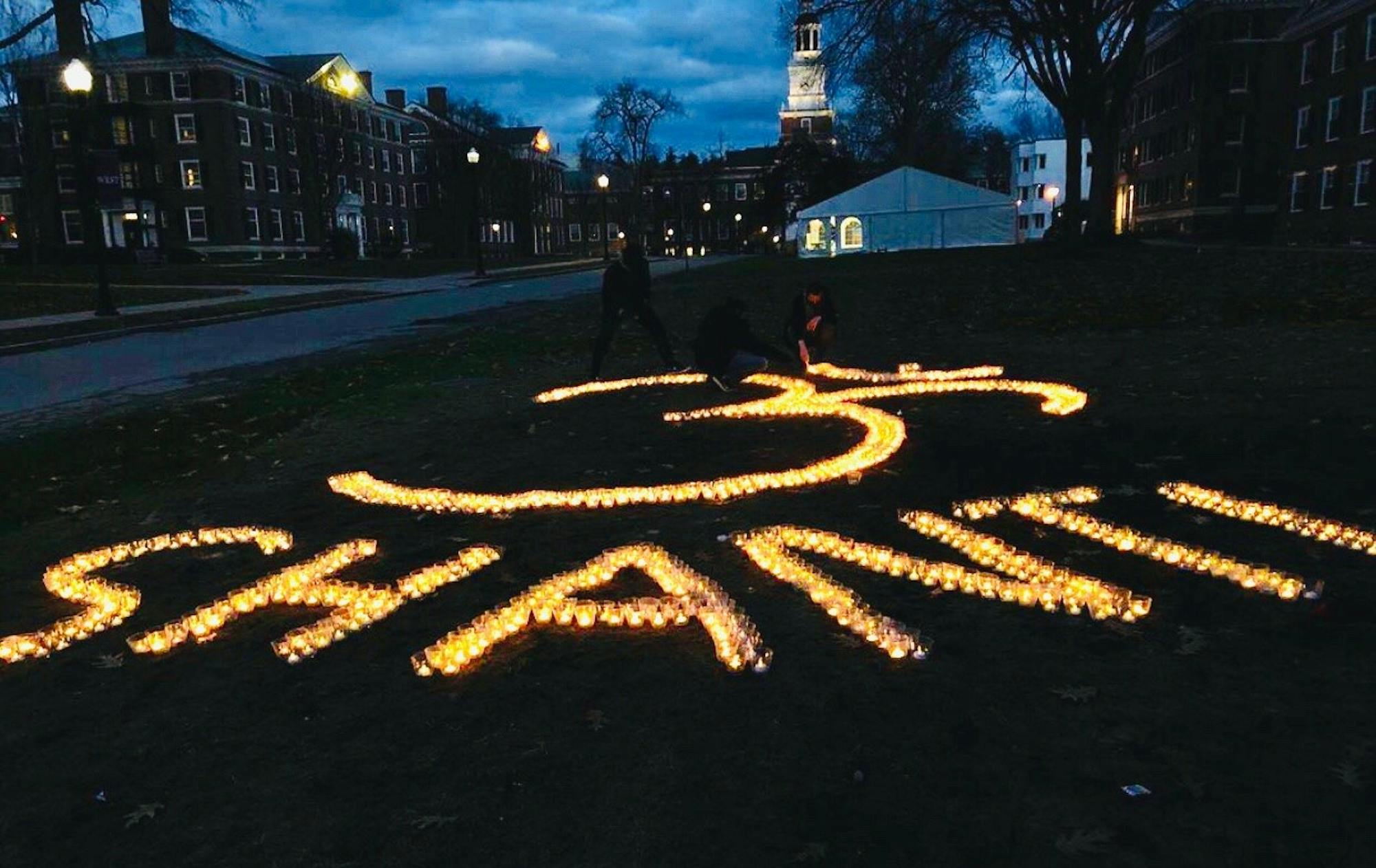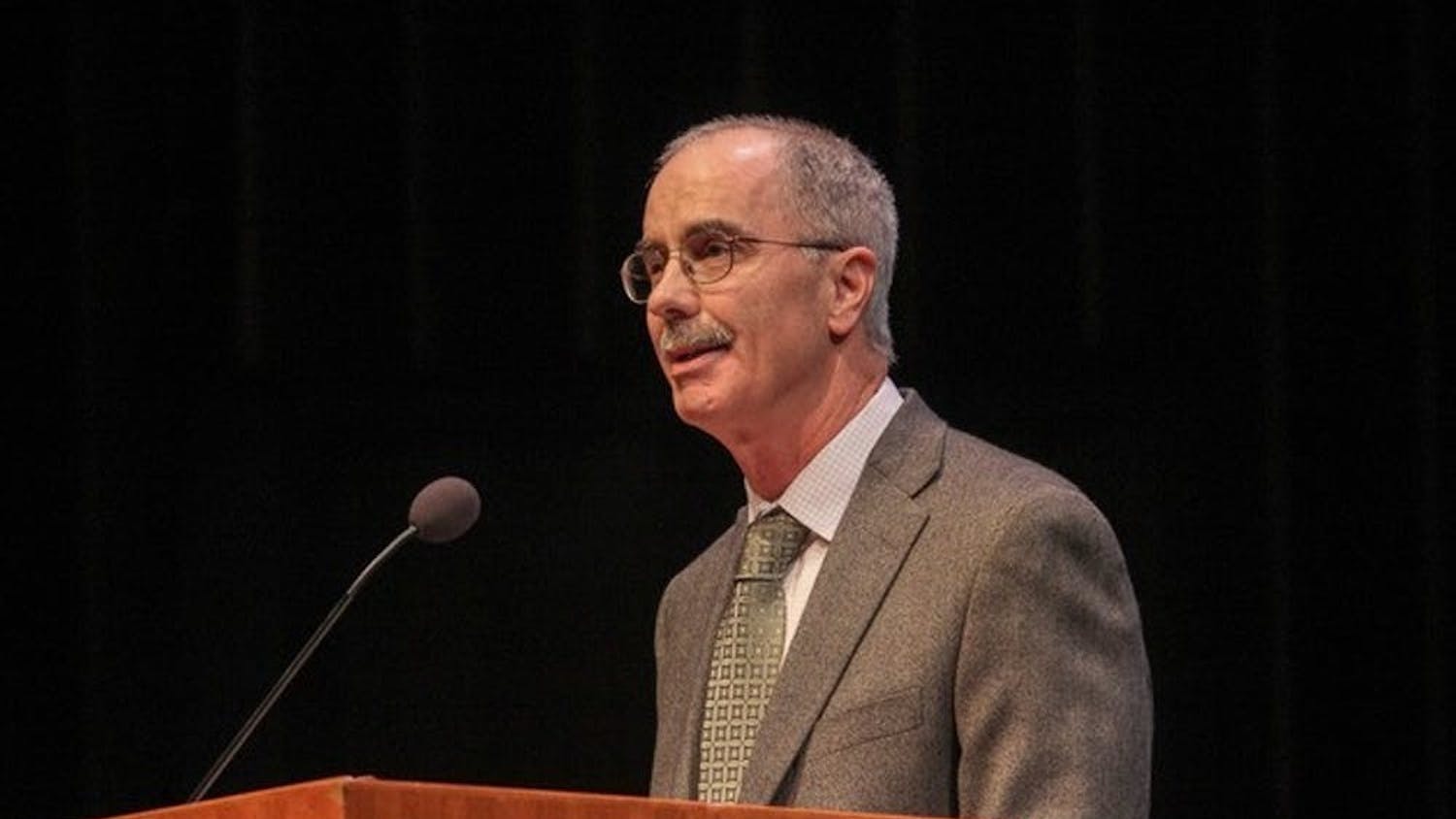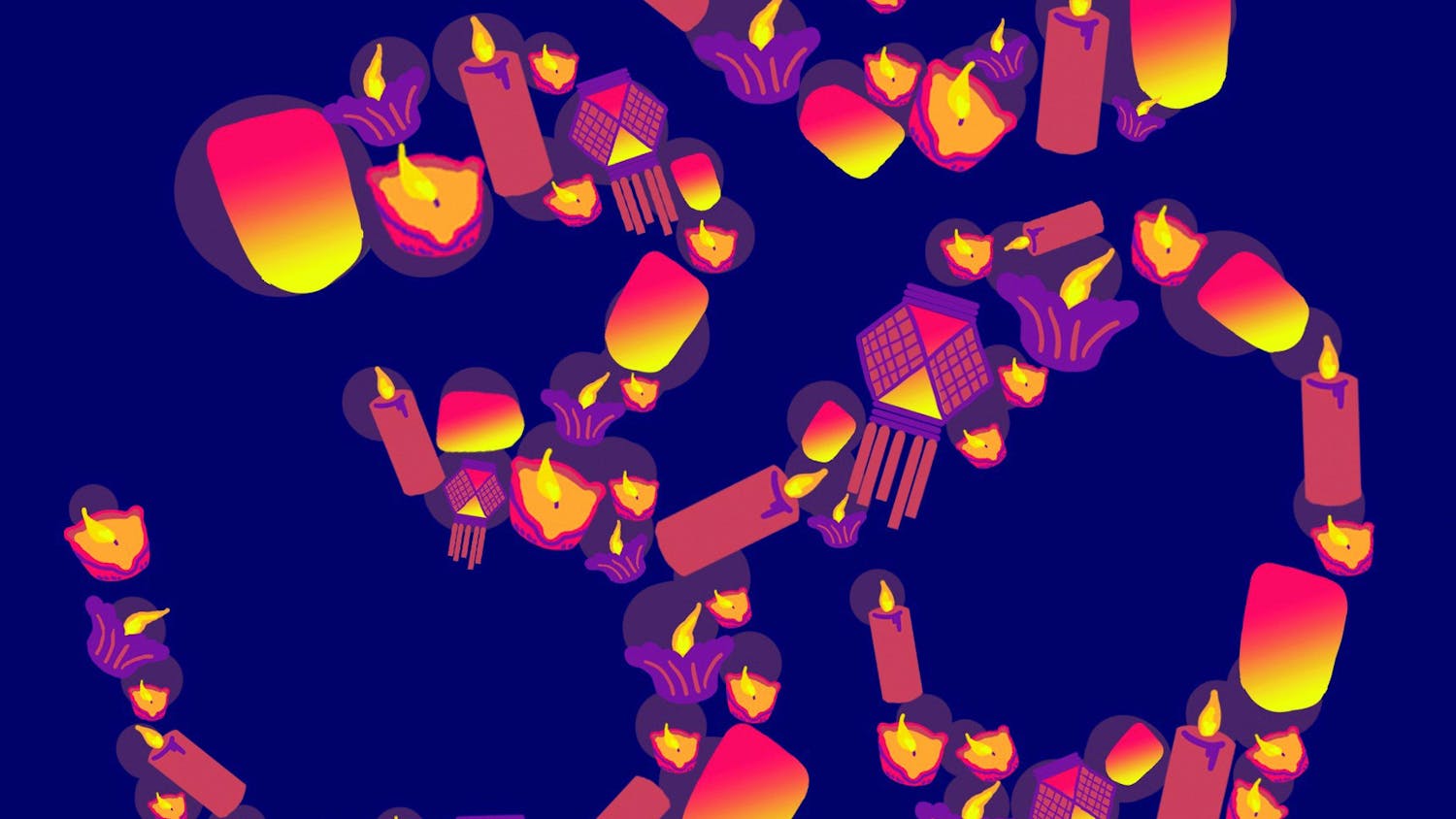This past Saturday, Hindus, Sikhs, Jains and other religious groups around the world celebrated the holiday of Diwali. On campus, Dartmouth’s Hindu student organization Shanti celebrated with a prayer and a celebration, though the event was notably smaller this year due to COVID-19 restrictions.
Diwali is celebrated by Hindus and others as a celebration of light and victory over darkness. Week-long celebrations usually include candles, fireworks, colored powders and dancing. According to Shanti president and Sucharita Jayanti ’14 GR ’21, the word Diwali comes from the word ‘Dipawali’ in Sanskrit; “Deepa” means light or lamp, and “awali” means rows.
“The most important part of Diwali is the row lights and the row of lamps,” she said.
Under normal circumstances, Dartmouth students celebrate Diwali with a light display of approximately 10,000 candles in the shape of the letter “Om” that cover the Green, as well as with South Asian dance performances. This year, however, students had to sign up to see a smaller version of the light display on Gold Coast lawn.
In many Hindu traditions, “Om” represents all things good in the past, present and future. This year’s candle display also spelled out “shanti,” which is the Hindi word for tranquility and peace.
The candle festival this year changed significantly to accommodate Dartmouth’s COVID-19 restrictions, Shanti member and organizer Suraj Srivats ’22 explained. Srivats said that the group was allowed around 100 candles, and only those students approved for on-campus access could view or help set up the display. Additionally, the site could accommodate just 25 people at one time.
Srivats added that it typically takes months to plan the Diwali celebrations. This year, he said, everything felt last minute due to the challenges the group faced in getting events approved by the College. Additionally, many students who had previously helped plan the events were off campus, which made engagement and support harder to find.
In addition to the light display, students and community members were also able to participate in a remote puja, or prayer, to celebrate the holiday.
Adding to Dartmouth’s celebrations, the Hopkins Center for the Arts put together a Nov. 12 virtual Indian dance workshop with Nithya Ramesh, a research associate at the Center for Program Design and Evaluation at the Geisel School of Medicine. Forty-five members of the larger Dartmouth community joined Ramesh for the workshop, including participants living off campus.
Ramesh said that the class allowed her to celebrate the holiday despite the limitations on traditional “festivities” this year.
“I think it was a wonderful way to celebrate because [before teaching the class,] I personally felt like I wasn't seeing much of a festival vibe around. Getting to dance … with people to [traditional] music and feeling the spirit was really great. Parents and kids were all dancing together,” Ramesh said.

Manasi Singh '24 is from Cincinnati, Ohio. She is majoring in anthropology and politics, philosophy and economics. At The Dartmouth, she wrote for news and Mirror but later transitioned to the business staff. Manasi now serves as the Publisher.




